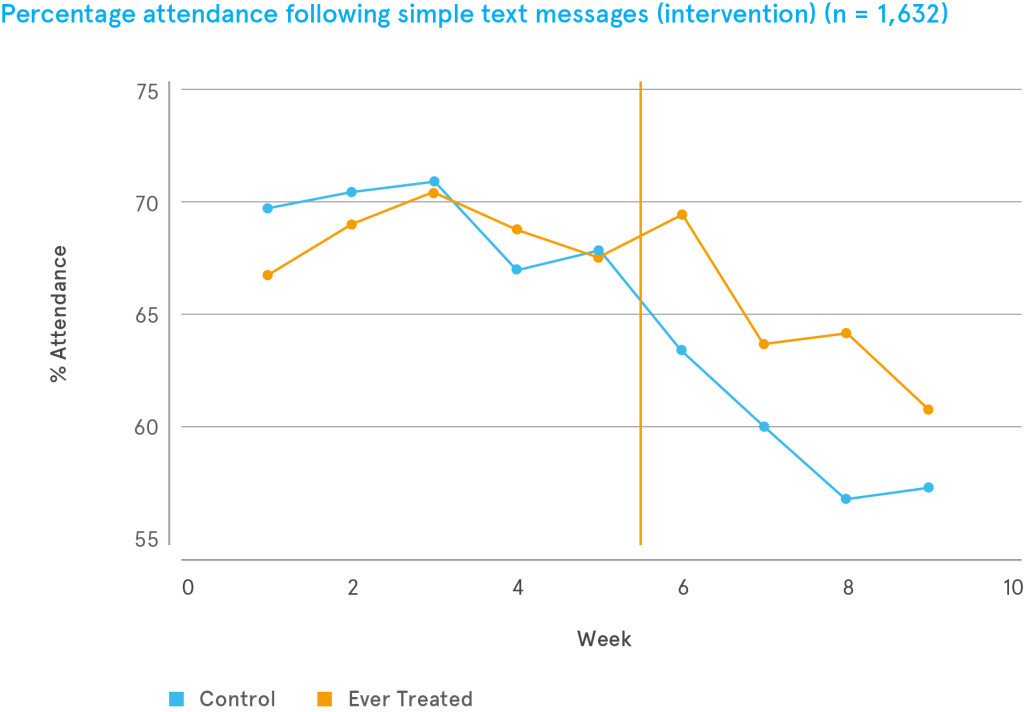In the last chapter of his latest book Misbehaving, Richard Thaler writes that education is an area ripe for the application of behavioural science and is already a “good example of a domain where field experiments run by economists are having an impact”.
Like Richard, the BIT is excited by the coming together of behavioural insights and education, and is working on its application across a number of areas.
On school aged education, BIT is working with a range of partners, including the Department of Education and the Education Endowment Foundation. This includes applying behavioural science to increase engagement with the Pupil Premium Awards and facilitating the spread of evidenced based programmes. We have also run a series of trials with the Somerset Challenge aimed at both students and teachers. A blog with the results of these trials will follow shortly, alongside a copy of the report.
On the adult education side, in partnership with the Department of Business, Innovation and Skills, BIT set up the Behavioural Research Centre for Adult Skills and Knowledge (ASK), looking into how behavioural science can be used to increase numeracy and literacy levels in the UK. An example of ASK’s work is a text messaging trial we have done with the further education college sector.
What was the intervention?
The intervention involved sending simple motivating text messages and planning prompts to maths and English learners at further education colleges in the UK (roughly equivalent to community colleges in the US). This randomised controlled trial (RCT) was conducted at class level with two arms, one control and one intervention. The control classes received no treatment and operated as normal. Learners in the intervention classes were sent messages every Sunday evening, and more frequently during half-term and term breaks as a way of continually engaging with learners when they were not at college.
Each message was personalised with the learner’s name and was signed off with the college’s name. Drawing on the literature around non-cognitive skills and educational performance, the texts aimed to inculcate the following four underlying beliefs which have been found to predict academic success: 1) I am part of the college academic community; 2) my ability improves with effort; 3) I can succeed; and 4) I am learning something useful. [1] The text messages also often prompted students to practice what they have been learning, or to plan their journey for the coming week.
What was the result?
As can be seen in the graph above, although the average attendance rate was declining in both treatment and control groups, the group receiving the text messages recorded consistently higher attendance after the intervention started (marked by the vertical orange line). The text messages improved average attendance rates by around 7%. Even more impressive, the number of students who had simply stopped attending was reduced by a third.[2]
How did we decide what to do?
As it stands, 78% of the UK population have numeracy below what is expected of a 16 year old and 43% for literacy. Around a fifth of adults in the UK do not have the numeracy and literacy levels expected of a 11-year old. While large numbers of these adults enrol in functional skills programmes at further education colleges, they face significant barriers to attendance and completion. Many adult learners have never entered higher education, and have been out of the educational system altogether for years before enrolling. Moreover, enrolees in adult skills courses have often performed poorly during their compulsory education and therefore have fragile confidence and motivation to improve their skills.[3]
Considering these factors and a growing body of literature around the effectiveness of short, timely messages in improving education outcomes, we decided on an intervention that would use texts to foster non-cognitive skills. We considered other channels such as social media, but consultation with college staff suggested text messages were still the best medium for communicating with learners.
What might be driving this effect?
Each text message aimed to inculcate at least one of the four motivating beliefs and often also prompted the learner to organise themselves for the coming week too. Because the texts were ‘bundled’ in this way, we cannot ascertain exactly which part of the intervention made it so effective. Our analysis did find that the intervention appeared to be most effective for learners who had enrolled in a larger number of classes, but we do not yet know why this is the case. However, we have more data to come in the next two months that we hope will shed light on the mechanism driving the effects.
What next?
These results are from interim data we collected last December. Since then, the learners will have completed their courses and taken their exams, so we will soon be able to analyse the effect of the intervention on the rest of the year’s attendance and ultimately academic attainment itself. We also conducted a survey of all the learners, asking them (among other things) how they felt about their course, their academic ability and whether they felt a sense of belonging in the college. We hope these survey responses will shed some light on how and why the intervention works.
For ASK, this text messaging trial has set the platform for a range of other interventions we will be testing this academic year around building grit, using value affirmations to develop resilience and using social relationships to support engagement.
Collaborating with leading academics and organisations, BIT is bringing together the world’s foremost thinkers in education to test behavioural interventions to improve educational attainment.
While behavioural science and education is an area full of potential, it is already having an impact in the here and now.
Come join us at BX2015 where we are hosting two sessions on education, ‘Back to the classroom’ and ‘Education RCTs: Past, Present and Future’.
If you are interested in working with us, email me at zhi.soon@behaviouralinsights.co.uk
[1] https://ccsr.uchicago.edu/sites/default/files/publications/Noncognitive%20Report.pdf
[2] http://www.hbs.edu/faculty/Publication%20Files/15-065_4f94294b-c534-4c52-8c8f-a66b39d6186c.pdf
[3] Gorard, S., Smith, E., May, H., Thomas, L., Adnett, N., & Slack, K. (2006). Review of widening participation research: addressing the barriers to participation in higher education. Bristol: Higher Education Funding Council.

